SEMA Vs. the EPA's Attempt to Outlaw Race Cars
The U.S. Environmental Protection Agency (EPA) is embroiled in a lawsuit with Gear Box Z, Inc., contending that the Clean Air Act (CAA), doesn’t allow you to convert your street car into a competition-only race vehicle.
Auto Lobbyists Attempt to Soften USMCA, Look to White House [UPDATED]
Lobbyists are reportedly seeking to soften the United States-Mexico-Canada Agreement (USMCA) now that there are some new faces in the White House. Signed in 2018, revised in 2019, and effective since 2020, the USMCA sought to restore North America’s manufacturing base with new content requirements and place the United States in a more favorable position than it held under the North American Free Trade Agreement. But industry groups are now claiming that interpretations from government agencies are gumming up the works, and accusing the U.S. of having a different interpretation from what the other nations had originally agreed upon.
“[The USCMA interpretation makes] meeting the … content provisions that much more difficult for everyone to achieve,” stated David Adams, president of Global Automakers of Canada.
Senate Confirms Biden Admin Pick to Head EPA
On Wednesday, the U.S. Senate voted 66-34 to confirm Michael Regan as the next administrator of the Environmental Protection Agency (EPA). The Biden campaign had signaled that it wanted to clean house following appointments from the Trump administration well before the election, noting that the EPA was of particular importance since it needs to be in line with the bold energy strategy. Regan’s role as administrator is essential since he’ll have the ability to encourage the United States to reduce emissions wherever possible.
Whereas the Trump administration sought to undo Obama-era policies it deemed untenable and soften the power of highly influential independent executive agencies, Biden and company are bent on restoring those policies while strengthening some of its own. Regan (44) is presumed to pursue greenhouse gas emissions reductions for automobiles, powerplants, and oil refineries by any means available. He began his career as an environmental regulator for the EPA during the Clinton administration, stayed on through the Bush years, and later joined the Environmental Defense Fund — a nonprofit environmental advocacy group that frequently partners with multinational companies to create “market-driven” solutions to climate change.
Judge Approves Daimler AG's $1.5 Billion Diesel Emissions Settlement
On Tuesday, a federal judge approved a $1.5 billion settlement to pump the brakes on an investigation conducted by the U.S. government pursuing claims that Daimler used illicit software that allowed excess diesel emissions on 250,000 units. This runs in tandem with another $700 million settlement the automaker is making with vehicle owners, which is likely to see final approval in a few months, and an extensive recall campaign.
The federal case involves the U.S. Justice Department, the California Air Resources Board, and follows a trend of fines for automakers accused of misleading regulators so that diesel vehicles could continue being sold. This kicked off with Volkswagen’s Dieselgate in 2015, with numerous government probes taking place in Europe and North America over the next five years. Many automakers have since been discouraged from relying on diesel powertrains due to rising regulatory actions. European countries that once championed the fuel as ecologically preferable to gasoline, after the advent of biodiesels, are now obsessed with tamping down NOx emissions and getting more electric vehicles onto the road.
Lawmakers Introduce Bill Offering USPS More Money for EVs
Despite the United States Postal Service (USPS) having recently finalized its plan to award Oshkosh Defense a $482 million contract to replace its ramshackle fleet with sparkly new Next Generation Delivery Vehicles (NGDV), Postmaster General Louis DeJoy said it could only afford to make 10 percent of the fleet electric. The USPS would allegedly need another 3 or 4 billion dollars in government assistance to make BEVs happen in meaningful numbers and some lawmakers seem happy to oblige.
A bill sponsored by House Representative Jared Huffman (a California Democrat), introduced on Monday, seeks to allocate $6 billion to increase the number of EVs used by the USPS — with the stipulation that at least 75 percent of the motor pool be zero-emission vehicles. The original plan estimated expenditures of roughly $6.3 billion over the duration of the 10-year program to modernize the United States’ postal fleet. But the service ultimately decided to go with Oshkosh’s internal combustion model, rather than the electric prototypes offered by other manufacturers.
White House Briefly Mentions Fixing Our Horrible Roads
On Thursday, President Joe Biden spent part of his day listening to a group of lawmakers discuss how much the United States might need to spend on fixing its horrible infrastructure. It’s an issue America has neglected through multiple administrations and has frequently been set back by partisan conflict.
Considering the White House is ruminating on how to source trillions of dollars in new infrastructure spending after the U.S. just printed $9 trillion (almost 25 percent all USD currently in circulation) for COVID relief, that’s unlikely to change. Everyone is worried about raising taxes and causing inflation during a period of economic uncertainty, or skeptical that the government will use the new funding responsibly. But our roads (among other infrastructure projects) are reaching a point where they can no longer be ignored, placing the entire country in a particularly sour pickle.
Welcome to Electric Avenue — More Chargers on the Way
The Electric Highway Coalition, a consortium of six utility companies, will provide a network of 20-30 minute DC fast chargers for EV drivers, as reported by Electrek. Each of the utilities will be responsible for providing EV charging within their service areas, with most sites located along major highways for easy access and adjacency to other amenities.
White House Presses Taiwan On Semiconductor Shortage
Automakers around the globe have been issuing warnings for weeks that the semiconductor shortage will eventually result in fewer cars and leaner profitability reports. But the absent chips are affecting just about every industry producing modern connected devices, creating fears that electronic prices could skyrocket as availability dwindles. Lockdowns effectively crippled semiconductor supply lines right as demand peaked and everyone is starting to get a little worried about how it’s going to impact production in other industries.
The White House is reportedly taking steps to mitigate the issue by tasking Brian Deese (Director of the National Economic Council) and Jake Sullivan (National Security Adviser) with coming up with a solution. It’s also asking embassies to assist chip suppliers around the world however possible and hopefully suss out a way to stop the global shortage. Meanwhile, Deese and Sullivan will be focusing the brunt of their efforts on Taiwan.
European Auto Lobby Demands More EV Charging Stations for Hundredth Time
The European Automobile Manufacturers’ Association (ACEA) is demanding the EU install more electric vehicle charging stations in a letter co-signed with Transport & Environment (T&E) and the European Consumer Organization (BEUC). This marks the hundredth time (rough estimate) an auto lobbying entity has tried to pressure the government into spending a fortune to drastically alter the European infrastructure to support the planned glut of EVs.
But it might be a fair request. Regulatory actions have effectively forced the industry into a corner and it now seems giddy at the prospect of an electrified world. The only real downside is that the charging infrastructure and power grids aren’t ready. ACEA estimates that the EU will need to build one million public charging points by 2024, with hopes of seeing three million installed before 2030.
Let’s see how feasible that is before it’s tried in our neck of the woods.
Tesla CEO Accused of Kowtowing to China: A Tale of Two Musks?
Tesla CEO Elon Musk came under fire this week after Bloomberg wrote a piece accusing him of playing nice with totalitarian China following years of showing totalitarian California a complete lack of respect. With the semiconductor shortage leaving the industry in a holding pattern, tabloid journalism seems to be filling in the gaps to the dismay of yours truly. However, Musk’s relationship with both countries remains relevant since they represent the two largest automotive markets on the planet and will dictate the trajectory of the business.
He’s being accused of being extremely apologetic to Chinese regulators, despite having become infamous for acting in the exact opposite manner in the United States. As you might recall, American Musk is all about flagrantly ignoring the rules and telling the government regulators to take their concerns into the bathroom where they’ll have the privacy necessary to stick them where the sun doesn’t shine. When it comes to high-IQ billionaires, our Elon is the bad boy’s bad boy. But Chinese Musk is said to be deferential and happy to comply with the request of oversight groups before they become official mandates.
He sounds like a total traitor! At least, that’s how China’s state-run media framed it before Western outlets took the reporting and made Elon seem even worse on Tuesday. The story has since been spreading online, encouraging this website to take another look to see if Mr. Musk is actually the double-crossing villain that’s being claimed.
Ford Cancels EV Joint Venture With China's Zotye
Ford Motor Co. has decided against its plan to launch an electric vehicle joint venture with China’s Zotye Automobile. The American manufacturer confirmed the decision on Thursday, stating that the Chinese Communist Party (CCP) had made sweeping changes to its policies since the deal was initially agreed to in 2017.
Few specifics were given beyond that and Ford hasn’t indicated the move might suggest a retreat from the one-party socialist republic. Ford recently confirmed its plan to build Chinese versions of the all-electric Mustang Mach-E with Chongqing Changan Automobile Co. and maintains numerous joint ventures necessary to continue doing business inside Central Asia.
Dodge CEO Hints at Second Malaise Era, Blames Regulation
Dodge CEO Tim Kuniskis has repeatedly suggested that electrification would be a keystone trait of tomorrow’s automobiles. But he never sounds truly gleeful about the prospect, injecting the level of joy one might reserve when announcing that the trip to the grocery store after noticing spartan shelves in the kitchen. Kuniskis is aware that Dodge’s lineup caters heavily to automotive size queens and that its ability to manufacture those models is swiftly coming to a close.
Despite the former FCA giving the brand the go-ahead to manufacture V8-equipped behemoths like the Hellcat, the newly formed Stellantis auto group may be less inclined to continue those efforts and the freshly installed Biden administration seems wholly committed to doubling down on environmental regulations that were already at odds with high-output automobiles. Kuniskis typically stops short of discussing these issues as the death knell for automotive performance, suggesting instead that electrification will open new doors for the industry while closing a few others. But he occasionally issues statements hinting that he’s not quite so enthralled with or as hopeful about EVs as his contemporaries.
Tesla Self-Driving and Unintended Acceleration Not The Same Says NHTSA
Tesla vehicles that drive themselves and those that continue unintentionally are not the same, according to the National Highway Traffic Safety Administration (NHTSA).
Transportation Secretary Elaine Chao Resigns Amidst D.C. Chaos
Elaine Chao, the U.S. Secretary of Transportation, has resigned in the wake of the unrest in our nation’s capital yesterday.
Tires Made in Southeast Asia Will Be More Expensive
Tires from South Korea, Taiwan, Thailand and Vietnam are about to get more pricey, as the U.S. Department of Commerce (DOC) announced yesterday preliminary duties in the antidumping duty (AD) investigations of passenger vehicle and light truck tires from those countries.
IRS Rolls Back Standard Mileage Rates for 2021
The IRS has issued the 2021 standard mileage rates used to calculate the deductible costs of operating an automobile for business, charitable, medical, or moving purposes.
NHTSA Requires Odometer Statements Up to 20 Years
NHTSA, the U.S. Department of Transportation’s National Highway Traffic Safety Administration, issued a reminder that starting January 1, 2021, every vehicle ownership transfer will require an odometer statement for the first 20 years.
Michael Regan Nominated as EPA Head
Michael Regan, who heads the North Carolina Department of Environmental Quality, is President-elect Joe Biden’s nominee as the next Environmental Protection Agency administrator.
Biden Reportedly Selecting Buttigieg as Transportation Secretary
Despite the obscene level of confusion surrounding the U.S. election that’s been left unresolved, the media has reported that Joe Biden is supposed to become the next president (Ed. note — not only that, but the Electoral College has certified Biden’s win). While we cannot speak to continued legal challenges being presented or the now-reported FBI corruption probe looking into international money-laundering allegations against the Biden family, we do know that Joe is supposedly tapping Pete Buttigieg as Transportation Secretary.
The former mayor of South Bend, Indiana, who has never held federal office before, is being reported by Reuters as the former VPs pick for the cabinet role. While that should just about wrap up this story, the outlet wanted to make sure you were aware of the importance of this somewhat speculative news.
UAW Reaches Corruption Settlement With Justice Department
The U.S. Department of Justice has reached a proposed civil settlement with the United Auto Workers (UAW) in the gigantic corruption case that absorbed two former presidents and a slew of union officers over the last few years. With many involved already serving the first part of their prison sentence, the UAW has reportedly agreed to hold a referendum among the rank-and-file to change the way it elects the top brass. The proposal predictably includes some court oversight designed to catch any new instances of fraud coming from inside the union but doesn’t appear to address the corporate aspect.
As a positive, it’s not assumed that the union will see a complete government takeover. Like laundry, it’s already better to separate your alleged corruption to create legal buffer zones.
Automotive Alliance Manages to Delay Revised Massachusetts Right to Repair Law
The Alliance for Automotive Innovation (AAI) has managed to stall enforcement of a ballot measure recently passed in Massachusetts that expands access to data related to vehicle maintenance and repair. Last week, the relatively new lobbying/trade group asked a U.S. district court for a temporary order that would bar implementation of the state’s new right-to-repair rules aimed at giving vehicle owners more direct control of their private data and independent repair shops a fighting chance of staying in business. But the state’s attorney general has already decided that the rules are invalid until after federal cases have been decided.
The decision represents another victory for giant, multinational corporations at the expense of disgusting citizens interested in controlling their personal information and small business owners who have had it easy for far too long.
Hyundai Recalling 129,000 U.S. Cars Over Engine Fire Risk, Fined By Regulators
Hyundai Motor Co. is recalling roughly 129,000 vehicles sold in the United States over an engine issue that may pose a fire risk. While we’ve been generally kind to the manufacturer of late, thanks to a rather good lineup of well-designed vehicles, it’s been mucking things up with recalls.
Last week, Hyundai Motor Group (including Kia) agreed to shell out up to $210 million in civil penalties after American safety regulators said it was dragging its feet on enacting a recall that encompassed 1.6 million automobiles. Apparently, there was some confusion on what needed to be reported to the National Highway Traffic Safety Administration. But let’s begin with the latest problem covering the company’s 2.4, 2.0, and 1.6-liter engines.
Uber Asks CDC to Consider Drivers Essential, Wants Early Vaccinations
On Thursday, Uber Technologies made a request with the Centers for Disease Control and Prevention (CDC) that its drivers be deemed essential and up first for the COVID-19 vaccination. While slightly presumptuous, it’s hardly the only business to make such a plea. Delivery services, the trucking industry, food producers, and more have asked the CDC to make sure their employees have first whack at being inoculated.
With lockdowns still occurring, nobody wants to be made subject to new restrictions — especially if it hampers their ability to make money. Unfortunately, estimates leave widespread vaccinations a logistical impossibility until the middle of 2021.
Report: Japan May Ban Internal Combustion Vehicles Next Decade
The Japan Broadcasting Corporation, better known as NHK, reported that the island nation is considering banning new internal combustion engine cars by the mid-2030s this week. While we will continue to maintain that such an effort seems unrealistic when confronting the current realities of the market, Japan’s alleged plan offers a bit more leeway than proposals pitched in parts of Europe and North America. Nippon also finds itself in a better position in the preferred mixed approach of allowing mixed powertrains, which would allow the industry to continue production gasoline-driven hybrids.
For starters, the Asian country has a fairly comprehensive hydrogen fueling network thanks to its small size. It’s also in a position that would make nationwide EV charging more feasible than regions with plenty of wide-open spaces. But automakers aren’t making a peep on the issue, preferring to leave it up to regulators and the market.
Volvo CEO Says Governments Should Just Ban Gasoline Powered Cars
Volvo Cars’ chief executive, Håkan Samuelsson, believes a ban on gasoline-driven vehicles would be a more effective way to force groups to go electric than continuing to offer subsidies on battery-powered automobiles. The announcement comes as part of the Financial Times’ “Future of the Car Summit,” where Samuelsson will proclaim the internal combustion engine “a technology of the past.”
In related news, Volvo Cars is also in negotiations to merge with China’s Geely Automotive and has renewed its commitment toward becoming an electric-only brand by 2030. The latter issue will also be brought up during Wednesday’s Car Summit, with the CEO praising the United Kingdom’s promise to eliminate the sale of new gasoline and diesel cars that same year.
What miraculously convenient timing.
Gas War: Ford Urges Other Automakers to Join the Californian Coalition
The Ford Motor Company is asking automakers to join it in supporting Californian vehicle emissions targets aimed at supplanting the rollback that was supposed to become the national standard. General Motors has already abandoned its support of the Trump rollbacks, which offered concessions to appease environmental groups but ultimately targeted more lax fueling regulation while seeking to eliminate California’s ability to self regulate as a way to curb its influence. But industry leaders are under the impression that a President Biden would attempt to swiftly transmission back to Obama-era regulatory targets or simply adopt the California model that’s been at odds with the national standards established by the Trump administration.
Considering how aggressive the Biden-Harris energy/environmentalism platform is, it certainly seems a plausible scenario and certain automotive executives feel that it would be best to go into 2021 aligned and supportive. The matter is even scheduled to be brought forward during Tuesday’s virtual auto trade association meeting.
U.S. Government Awards Huge Transportation Contract to Uber, Lyft
The General Services Administration (GSA), responsible for managing services for federal agencies, issued a five-year federal contract to Uber and Lyft. Confirmed by Veronica Juarez, Lyft’s vice president of social enterprise and government, on Monday, the deal estimated to be worth somewhere in the neighborhood of $810 million and allows the ride-hailing firms to offer public agencies a direct line to their transportation services.
While federal employees have always been able to utilize the services, the new arrangement makes them semi-compulsory for some of the millions of government employees involved. Meanwhile, Uber and Lyft can now work directly with officials to promote their services. With the recent passing of California’s Prop 22, which issued special legal protections to ride-hailing companies, the duo seemed to be experiencing a run of good fortune late in the year. That doesn’t guarantee that they’ll suddenly become profitable entities. But they could be with sufficient government support — which seems increasingly likely for reasons we’re about to dive into.
NHTSA Begins Regulatory Proceedings for Autonomous Safety, You Can Help
Safety regulators with the National Highway Traffic Safety Administration (NHTSA) said they were opening formal regulatory proceedings to establish new safety standards for autonomous vehicles on Thursday. However, before the NHTSA can get into proposing new rules that will influence how cars that can control themselves will be handled by the U.S. government, it wants citizens to offer their two cents.
We’re talking specifically about Levels 3-5 of automation as defined by SAE, meaning cars that could someday be sold without steering wheels or any other means to take control of the vehicle yourself. It’s something industrial lobbyists with the Alliance for Automotive Innovation (AAI) already have a roadmap for and plan on sharing with the NHTSA soon. Based on the group’s previous initiatives, we imagine it’ll be advocating the government leave as much control in the hands of manufacturers as possible. But you’ll have a limited window to weigh in on that position (or, better yet, share your own) while regulators have an open request for public comment.
NHTSA Upgrades Safety Probe Into 159,000 Tesla Vehicles
On Monday, the National Highway Traffic Safety Administration (NHTSA) announced it would be upgrading a probe into almost 159,000 Tesla Model S and Model X vehicles relating to touchscreen/memory issues that could result in a failure to comply with federal standards.
U.S. regulatory mandates stipulate that modern vehicles be required to have rear-camera displays to aid drivers traveling in reverse. The expanded investigation has tripled in size and now encompasses 2012-2018 model year Tesla Model S and 2016-2018 Model X vehicles, which may be eligible for a recall if the NHTSA sees fit.
Progress, Thy Name is ZETA: New Electric Vehicle Lobbying Group Hits the Scene
If you think the political class is interested in what kind of policies citizens would like to see implemented, you’ve clearly never heard of lobbying groups. While we’re stuck at home writing thoughtful letters to congressional interns in the faintest hope that they’ll be dictated to a senator, corporately supported lobbyists are taking legislators out to dinner so they can discuss how best to govern on a single issue. They’re important in determining the trajectory of the nation but many get criticized for placing the needs of the business over that of the individual voter.
Buckle up, because we’re getting another one. On Tuesday, the Zero Emission Transportation Association (ZETA) held its own coming-out party and announced its mission to advocate for “national policies that will enable 100 [percent] electric vehicle sales throughout the light-, medium-, and heavy-duty sectors by 2030.”
Quebec Banning Gasoline Dependent Passenger Vehicles in 2035
On Monday, the Canadian province of Quebec announced it would be joining California and numerous European locales in the banning of gasoline-powered automobiles. Announced during a meeting regarding the region’s green economy plan, the French-speaking province said all new vehicles sold after 2035 would have to be entirely electric. Then there was a slight derailment as Premier François Legault used the occasion to publicly decry that it was “totally unacceptable” that some shop owners in Montreal are failing to greet customers in French and that the situation needed to be remedied immediately. Montreal Mayor Valérie Plante agreed, saying “clients must be able to get served in French. Period.”
One battle at a time, heroes. Justice will be served (and in glorious French) to those English-speaking heathens and their foul-smelling cars soon enough.
Gas War: California Regulators Say Biden Should Embrace State's Emission Plan
While multiple states launch mandatory election recounts and President Trump throws around lawsuits like confetti Joe Biden and the mainstream media are preparing for his ascension from regular old man to Leader of the Free World — though that title doesn’t seem to get much play these days. Biden has already started holding meetings with foreign leaders and experts on how to go about heading the United States. Apparently, there’s even been some progress on how to govern the nation.
On Thursday, California Air Resources Board (CARB) Chairwoman Mary Nichols said the state’s arrangement with major automakers over fuel efficiency requirements would be ideal for the presumed Biden administration — which has promised to implement some of the most ambitious emissions standards the world has ever seen. Nichols also expressed excitement at the possibility of heading the U.S. Environmental Protection Agency (EPA) under a Biden presidency and is reportedly under serious consideration for the position.
German Auto Lobby Wants Biden to Eliminate U.S. Trade Restrictions
Germany is eager to see the United States abolish trade barriers implemented by President Donald Trump now that it looks like Joe Biden has won the 2020 election. While that could all be undone by the sudden influx of legal actions taken by the Trump campaign as presumptive evidence of election impropriety streams in, Germany would still like to get the ball rolling on trade with the Democrats.
The nation’s automotive industry is petitioning leadership in the U.S. and European Union to align technical/regulatory standards and minimize the existing trade barriers. The German Association of the Automotive Industry (Verband der Automobilindustrie) or VDA has already endorsed the proposal with the lobby group’s president confirming its position in a recent webcast hosted by the Frankfurt business media club ICFW (Internationale Club Frankfurter Wirtschaftsjournalisten).
Massachusetts Passes Right-To-Repair Protections
Independent repair shops and aftermarket parts retailers have been pitted against major automakers and their dealer networks in Massachusetts for years. The state has served as the primary battleground for right-to-repair legislation that would permit/prohibit customers and independent entities from working on or modifying vehicles. However, a major victory came on Tuesday after voters overwhelmingly approved a ballot measure updating existing right-to-repair laws to give vehicle owners and small shops better access to vehicle data typically reserved for industry giants.
The resulting decision gives consumers substantially more control over what’s done with the data being harvested by the industry (often without their knowledge) and frees up their options on who to go to when their vehicle needs fixing.
Joe Biden Wants to Bring Back Cash for Clunkers
Earlier this week, presumed Democratic nominee for president and former shut-in Joe Biden discussed some of the changes he’d make if elected. While most do not overlap with the automotive industry and would force your author to digress into rants about the perils of unchecked government spending, one item tied to his ambitious $2 trillion climate proposal is related directly to cars — and feels uncomfortably familiar.
Biden appears interested in bringing back the Car Allowance Rebate System (aka Cash for Clunkers) from the last recession, or at least a version 2.0 that accelerates electric vehicle adoption and development inside the United States.
Silver and Gold: Nevada Joins California in the Gas War
On Monday, Nevada Governor Steve Sisolak announced that his state will embrace California-crafted emissions rules that are at odds with the national rollback finalized by the Trump administration in March.
Officially, Sisolak said the rules would not require residents to abandon their current ride “or choose one that does not work for their lifestyle or business needs.” Nevada has, however, decided to adopt higher mpg standards, as well as the Golden State’s zero-emission vehicle (ZEV) rules that require manufacturers to sell a certain number of electric or plug-in hybrid models each year based on the total number of vehicles sold within the state.
Companies in compliance accrue ZEV credits, which can then be traded or sold to other manufacturers for money. As with the Corporate Average Fuel Economy (CAFE) system, those that cannot hit their targets (or afford to buy up credits) will be fined. Tesla actually used such arrangements to make $594 million off its rivals in 2019, with the prospect of things only getting more lucrative for the all-electric brand.
Gas War: Senator Asks EPA Watchdog to Investigate New Fuel Efficiency Rules
Every time we think the United States’ fueling fracas had concluded, something new emerges to remind us that we’re utter morons. Despite the Trump administration finally wrapping up the fuel rollback of Obama-era emission standards on March 31st, Senator Tom Carper (D-DE) has sent another letter asking Environmental Protection Agency Inspector General Sean O’Donnell to look into the new rules.
Carper asked the inspector general last February to conduct an investigation into “potentially unlawful efforts and procedural problems” stemming from their implementation. His assertion is that the EPA was circumventing various procedural requirements and attempted to hide data that would have conflicted with some of the rollback’s claimed benefits.
Did it?
Gas War: EPA and DOT Release Final Draft of Fuel Rollback
The U.S. Department of Transportation’s National Highway Traffic Safety Administration (NHTSA) and the Environmental Protection Agency (EPA) released their final version of the Safer Affordable Fuel-Efficient (SAFE) Vehicles Rules on Tuesday. This will establish new targets for corporate average fuel economy (CAFE) and emissions standards for passenger vehicles from the 2021-2026 model years and just in the nick of time. The document had to be completed by April 1st, in order to leave sufficient time for the coming model year.
If you’ve been following the long and arduous process that brought us here, you’ll notice the document has changed slightly from previous drafts. The rollback still enacts the straightening of emission regulations but reels them back from the lofty goals set by the Obama administration. Annual increases in fuel efficiency standards will be set at 1.5 percent through 2026. Previous drafts had the Trump administration freezing efficiency requirements at 2020 levels.
National Real ID Deadline Delayed Until 2021
On Thursday, Homeland Security Secretary Chad Wolf announced that the Real ID deadline — which had previously been delayed indefinitely due to the coronavirus outbreak — has been pushed back until October 21st, 2021, as directed by President Trump.
Enacted in May of 2005, the Real ID Act was basically Congress over-responding to 9/11 by mandating that state-issued driver’s licenses be updated so they can be used for official purposes by the federal government (as defined by Homeland Security). While the primary goal is to mitigate air travel of undocumented immigrants between states, the aforementioned “official purposes” applies to whatever the federal government thinks prudent on any given day — including barring citizens without the ID from military bases or federal buildings, in addition to air travel.
If you haven’t heard of Real IDs (indicated by a little gold star in the corner), you’re not alone. The issue only gets a smattering of coverage every couple of years; plenty of states spent the period following 2005 pushing back against the plan, delaying its implementation several times via extensions. It was initially supposed to come into effect in four phases starting in 2008, but changes didn’t actually start until 2014. At this point, the nation is at phase three (which restricts access to federal facilities), with phase four applying new rules to U.S. air travel.
Japan Readies Auto Industry for Coronavirus Complications
Yep, we’re still talking about the damned coronavirus. But how could we not, with the situation being obfuscated from all sides as the outbreak just seems to worsen? Both Japan and South Korea have reported their first deaths relating to the virus; meanwhile, the unsettling theory that 2019-nCoV was created in a Chinese laboratory has grown by leaps and bounds.
While the mainstream media has dismissed this as an unfounded conspiracy, loads of circumstantial evidence published by reputable sources leave one wondering. Our favorite is that the exotic meat market initially pegged as the disease’s point of origin was across the the street from (get this) a viral disease laboratory. Senator Tom Cotton (R-AR) has repeatedly pushed for the virus’ origin to be found, saying “We also know that just a few miles away from that food market is China’s only biosafety level 4 super laboratory that researches human infectious diseases,” only to be framed as an alarmist crank.
There was also a Chinese coverup (similar to SARS) that kicked off when police detained eight doctors in Wuhan for attempting to warn the public of a potential outbreak. The point here is that nobody seems ready to give (or even search for) answers in China. Naturally, this has left people confused and scared, rather than just scared.
Driving Dystopia: License Plate Readers Are Becoming Increasingly Common
Policing a population is expensive. Law enforcement departments around the globe have long sought a way to tamp down costs or, more often, find better forms of supplemental revenue. Unfortunately, sending the SWAT team on a raid or hiring additional officers to patrol the highway for speeders costs money. But the price of surveillance technology continues to go down, encouraging agencies to tap into their rather robust capabilities — potentially at our expense.
China, the world leader in mass government surveillance, already has the ability to use its vast network of cameras to take over all manner of on-the-street policing. Electronic eyes are everywhere, often networked to facial recognition or plate identification technologies that enable authorities to mail you a ticket for speeding, jaywalking, or whatever else the patrolman failed to see you do in person. While some of the penalties stop at being publicly shamed via a national database or having your social credit score dropped (potentially barring you from some goods and services), these systems have also increased the number of finable offenses that make departments money.
While similar systems have been available in the United States, it seems the country’s penchant for liberty has drastically slowed their implementation. Yet it’s still happening, and there’s reason to suggest items like license plate readers and facial recognition software will soon become standard equipment for many (if not most) North American police departments.
Senate Approves USMCA Trade Deal Replacing NAFTA
The U.S. Senate approved changes to the North American Free Trade Agreement on Thursday, effectively replacing the 26-year-old deal with the new United States–Mexico–Canada Agreement. USMCA embraces stronger automotive content rules for the region, updates language for new technologies, and enacts sweeping labor protections aimed at uplifting the Mexican workforce. As a byproduct, it’s also likely to discourage automakers from isolating themselves south of the U.S. border in an effort to secure cheap labor.
Passing with a 89-10 vote in the Republican-controlled Senate, USMCA also allows President Donald Trump to keep his campaign promise of replacing NAFTA — a pact he often referred to as “the worst deal in history.”
Justice Department Subpoenas Automakers Over California Emissions Pact
The Justice Department has issued civil subpoenas to the four major automakers’ that voluntary agreed to adopt a Californian compromise on vehicle emission requirements. The antitrust investigation seeks to determine whether or not BMW, Ford, Honda, and Volkswagen were in violation of federal competition laws by agreeing with each other to adhere to stricter emissions standards penned by California.
With the Trump administration working for years to roll back emissions standards, California has been doing everything in its power to maintain its ability to self-regulate and gain support for higher emission standards. Under the agreement with the Golden State, the companies promised to meet annual emission improvement targets of 3.7 percent and defer to the state’s authority to set its own emissions standards.
Keeping Tabs: Germany Promises One Million EV Charge Points by 2030
German Chancellor Angela Merkel announced Sunday that her country will soon have one million charging stations ready for electric cars. Her words came ahead of numerous meetings with German automotive manufacturers on how best to spur EV adoption in Europe.
Pivoting to zero-emission vehicles has many worried about job losses. The United Auto Workers issued a nearly 40-page report on the implications of electric vehicles and how to address them during its negotiations with General Motors — after the automaker said the battery plant it was eyeballing in Ohio would require hourly employees to take pay cuts. The Center for Automotive Research has also indicated that EVs simply don’t take as many man hours to manufacture. It’s even mentioned in the Trump administration’s fuel economy rollback proposal — an effort bent on furnishing cheap automobiles and American jobs.
Germany is worried too, with groups echoing similar employment concerns. To mitigate those fears, while encouraging electrification and maintaining jobs, the nation wants to take its 20,000 charging stations to 1 million.
Trade War Watch: Report Claims White House Wants to Dictate Where Cars Are Manufactured
The Trump administration has reportedly expressed an interest in deciding where and how automotive manufacturers do their business if they want to secure duty-free deals under the United States–Mexico–Canada Agreement (USMCA) that’s positioned to replace NAFTA. According to Bloomberg, there’s currently a discussion taking place between administration officials, congressional staff, and domestic and foreign automakers regarding the context of the legislation that lawmakers will ultimately have to vote on. The White House is said to want highly specific language that would allow it to select production rules unilaterally.
Considering how messy things have gotten with China, it could be useful to have extremely clear trade language and some direct oversight of businesses with global interests. But critics are worried the strategy could bring U.S. trade policy closer to the rigid policies already in place in the People’s Republic — a country America has attempted to distance itself from due to its ludicrous levels of government intervention.
The real fear is that the government could use this to give one manufacturer better treatment than another — cutting it a sweet deal for building in a politically advantageous area, for example. While plausible, we can’t confirm something that’s largely speculative.
Battle Lines Are Being Drawn in America's Gas War
Ford Motor Co, Honda Motor Co, BMW Group and Volkswagen AG announced a voluntary deal with California in July — drawing a line in the sand for who they’ll be supporting in the fueling fracas taking place between the Golden State and White House. Meanwhile, the Trump administration’s rollback proposal — which intends on freezing automotive emission standards at 2020 levels through 2026 — saw no such support. But the cavalry seems to have finally arrived after sitting on the sidelines during the battle’s opening maneuvers.
General Motors, Fiat Chrysler Automobiles, Toyota, Mazda, Nissan, Kia, and Subaru all sided against California in a filing with a U.S. appeals court from Monday night. While they’re not setting any economy targets, they are collectively firm on the issue of the state’s ability to self regulate. A large portion of the industry wants a single national standard, not individual states setting their own benchmarks while they attempt to catch up with product.
Chicago Considers Congestion Charges, Starting With Uber/Lyft
Chicago is considering sticking ride-hailing services like Uber and Lyft with a new tax that would add a few bucks onto each ride. Mayor Lori Lightfoot has proposed a $40-million-per-year tax increase as part of a broader traffic plan modeled after London’s famous congestion fines. That means not all rides would be subject to the same fees, but each trip taken within the city would still cost a little extra.
While congestion charges are all the rage in Europe, they’re uncommon in the United States. New York City recently decided to financially penalize every driver taking a trip below 60th Street (something I’m not thrilled about), positioning Chicago as the second major metropolitan area in the U.S. to move forward on congestion fees. Lightfoot claims it’s a necessary first step “to improve mobility and further our goals of ensuring sustainable, affordable and reliable access to transportation options in every neighborhood.”
UAW Corruption Probe Fingers Another Union Official, Implicates General Motors
A federal probe that’s been dropping United Auto Workers staff like flies has another one in its crosshairs, this time with ties to General Motors. Up until now, the investigation has primarily involved members connected to the union’s Fiat Chrysler Automobiles department or the UAW-Chrysler National Training Center. But, according to court records filed Wednesday, retired UAW-GM Center for Human Resources board member Michael Grimes is also formally accused of corruption.
Grimes becomes the ninth individual to be slapped with corruption charges and the first with links to an automaker outside of FCA. He is not, however, alone. Court documents suggest he’s one of several UAW officials suspected of accepting bribes and kickbacks from automakers; they’ve just yet to be named.
Mild Misinformation About the Gas War: Governors Unite, Automakers Compromise
On Tuesday, 23 governors signed a joint statement urging the Trump administration to reconsider the proposed rollback of Obama-era fueling regulations. Led, unsurprisingly, by California Governor Gavin Newsom, the letter suggests a “common-sense approach” to national requirements with an emphasis on rising standards.
A minor update in the gas war to be certain — and yet annoyingly framed by a large portion of the media as a victory for California when the realities are far more complicated. To be frank, we’re getting pretty tired of these lopsided takes. This whole thing is a regulatory and political quagmire… on all sides.
Europe Wants to Compete With China's Battery Production, Eventually
Wary that China might have the battery market totally cornered by the time electric vehicles become mainstream, the European Union is trying to jumpstart the industry at home. This year, the EU has started working with manufacturers and financial institutions to develop a reliable supply chain of the lithium-ion packs that have been difficult to come by.
European Commission Vice President Maros Sefcovic is targeting 100 billion euros ($113 billion) for the program, which Bloomberg said would help the EU “act like China.”
Supreme Court Rules Police Can Draw Blood From Drivers Without Warrant
The Supreme Court has ruled that police may order blood drawn from an unconscious person suspected of driving under the influence without a warrant. While that sounds like a possible violation of the U.S. Constitution’s Fourth Amendment, which protects against unreasonable searches, justices in support of the practice claimed individuals consent to blood tests just by being on the road.
Their rationale? Wisconsin and a bunch of other U.S. states have laws that already make this legal and there’s a national precedent allowing for exigent circumstances. But let’s start with America’s Dairyland for some background.
Gas War Watch: Canada Sides With California
Canada’s federal government announced it has signed a memorandum of understanding with California to further reduce vehicle emissions. It would appear that the United States’ neighbor to the north has chosen a side in the gas war — at least spiritually.
Canadian Environment Minister Catherine McKenna, along with California Governor Gavin Newsom, announced the agreement’s signing on Wednesday.
“As the world’s fifth-largest economy and a global leader in clean transportation, California is a leading example of how climate action can be good for people, the environment and the economy,” McKenna said. “We look forward to working with California to fight climate change, keep the air clean and give drivers better options for cleaner, more affordable vehicles.”
Gas War Watch: EPA and CARB Leadership Won't Even Share the Same Table
Capitol Hill was the scene of some high-school drama this week after representatives from the Environmental Protection Agency (EPA) and the California Air Resources Board (CARB) reportedly refused to sit at the same table while discussing fueling regulations with the U.S. House Energy and Commerce Committee.
As petty as this seems, it illustrates the overall situation rather well. White House officials terminated talks with California in February, citing an inability to progress the debate. Meanwhile, CARB has been claiming the Trump administration doesn’t want to hear its case and has instead sought to strip the state of its ability to self regulate in order to pass reforms that would freeze national emissions standards at 2020 levels though 2026.
Thursday’s congressional bickering helped paint a clearer picture of what the communications breakdown looked like.
Gas War Watch: UAW Goes to Congress, Sides With Automakers on Fuel Economy Rollback
The United Auto Workers is spending Thursday telling Congress that the union opposes the Trump administration’s proposal to freeze fuel efficiency requirements at 2020 levels through 2026… sort of. While the UAW expressed moderate environmental concerns in the past, most of its opposition to the rollback has revolved around corporate investments into the industry. In fact, the union’s research arm called fuel economy the auto industry’s “future” in 2018.
This time around, the UAW seems to be singularly focused on business aspects. According to a prewritten testimony, UAW Legislative Director Josh Nassar intends to tell two subcommittees of the U.S. House Energy and Commerce Committee that the union is in line with automakers’ concerns about the proposal leading to “protracted litigation and uncertainty in the industry that will limit growth.”
Attention Automakers: Ajit Pai is Not Your Friend
Two decades ago, the Federal Communications Commission decided to allocate a portion of the radio frequency spectrum for Dedicated Short Range Communications ( DSRC). The plan was to utilize that slice of the airwaves for ultra-modern automotive technologies relating to vehicle-to-vehicle and/or vehicle-to-infrastructure communications. Unfortunately, there hasn’t been a whole lot of activity on those channels.
The automotive industry was concerned it might need dedicated frequencies for use in autonomous-vehicle applications or some, yet unknown, technological advancement. But cable companies are annoyed that it’s being “wasted” and have started to antsy. They’ve asked the FCC to revoke carmakers’ exclusive rights to the frequencies and reallocate the majority of the 5.9-GHz band to the Wi-Fi systems that currently carry internet traffic for cable customers.
Hoping to encourage the commission to see things its way, Ford took FCC Chairman Ajit Pai out for a ride in an extra-special F-150 to plead its case. However, I feel like I can already predict whose side he’s going to take on this issue… and it isn’t going to be the automakers’.
The Great Gas War: House Committee Plans Hearing On Fuel Efficiency Rollback
On Tuesday, the House of Representatives Energy and Commerce Committee said it will schedule a hearing on June 20th regarding the Trump administration’s proposal to roll back automotive efficiency standards. The decision comes from Committee Chairman Frank Pallone, Jr. (D-NJ), Consumer Protection and Commerce Subcommittee Chair Jan Schakowsky (D-IL) and Environment and Climate Change Chairman Paul Tonko (D-NY) — all of whom are in clear opposition to the suggested plan.
The groups will hold a joint hearing to discuss Corporate Average Fuel Economy (CAFE) standards and carbon pollution regulations affecting light duty vehicles as they relate to the current administration’s plan to effectively freeze efficiency targets between 2020 to 2026.
Meet Us in the Middle: Automakers Plead for Peace, Compromise Between White House and California
The automotive industry is in turmoil. There’s an industrywide push toward electrification that has yet to prove itself as truly profitable, volume seems to be tapering off in the developed world, and emissions regulations aimed at improving air quality are operating counter to existing consumer tastes. As a result, automakers are scrambling to find the best path forward.
In 2017, that path involved encouraging the new U.S. president to roll back Obama-era fuel economy mandates, thus providing some breathing room and staving off fines as automakers began to realize they wouldn’t be able to meet tightening targets. The administration listened, leading to a proposal that would effectively freeze mileage standards at about 37 miles per gallon — rather than the previously decided 54.5 mpg — by 2025.
However, California and a coalition of supportive states claim they won’t be going along for the ride. This group says it will maintain the old standards, regardless of what the White House says. The staredown has automakers worried; they’ve now banded together to issue a letter asking both sides to calm down and keep talking.
Los Angeles Has a Green New Deal of Its Own - No ICE Vehicles by 2050
The last decade is littered with announcements from cities, provinces, and states from across the globe, promising to ban internal combustion vehicles by a predetermined date. While the rules and timelines vary quite a bit, the locations are relatively consistent. China and Europe are the most eager to adopt a zero-emission strategy, with California doing most of the promising in North America.
This week, Los Angeles Mayor Eric Garcetti announced the city’s “ Green New Deal.” Styled to resemble the contentious stimulus program sponsored by Rep. Alexandria Ocasio-Cortez (D-NY) and Sen. Ed Markey (D-MA) that shares its name, LA’s plan is similarly concerned with promoting “environmental justice,” equity, green jobs, renewable energy, improved air quality, and sourcing clean water.
Transportation is also a major component of the deal, with the city suggesting that 100 percent of car sales will be zero-emission by 2050 and 50 percent of all trips could be completed by walking, biking, “micro-mobility” (scooters, etc), or public transit — reducing vehicle miles per capita by 45 percent in the same timeframe.
40 Countries Agree - Automatic Braking Should Be Mandatory
Forty countries, led by Japan and the European Union, have agreed to require passenger cars and light commercial vehicles to come equipped with automated braking systems starting as soon as 2020.
According to the United Nations Economic Commission for Europe (UNECE), the new regulation will become compulsory for all countries that adopt it during an upcoming June session. However, the measure will only apply to vehicles operating at “low speeds,” which the U.N. claims is anything under 42 mph.




![Auto Lobbyists Attempt to Soften USMCA, Look to White House [UPDATED]](https://cdn-fastly.thetruthaboutcars.com/media/2022/07/19/9146752/white-house-invites-auto-execs-to-endorse-build-back-better.jpg?size=720x845&nocrop=1)

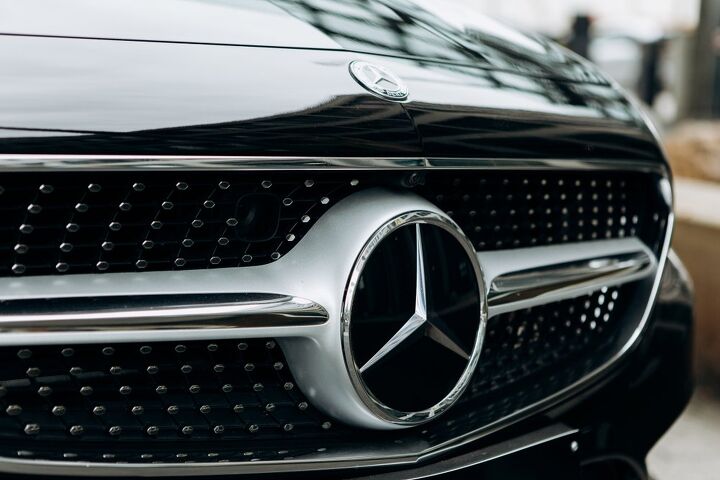

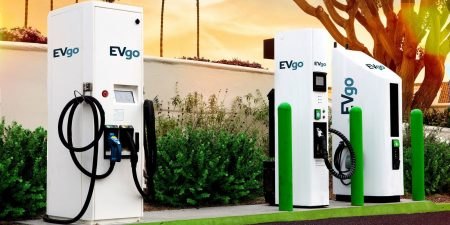




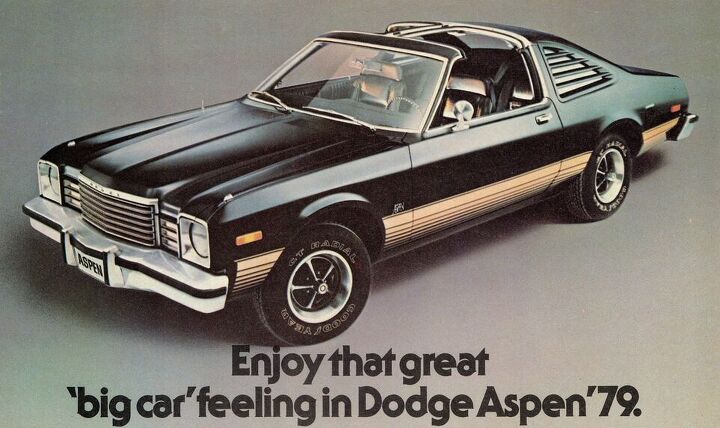
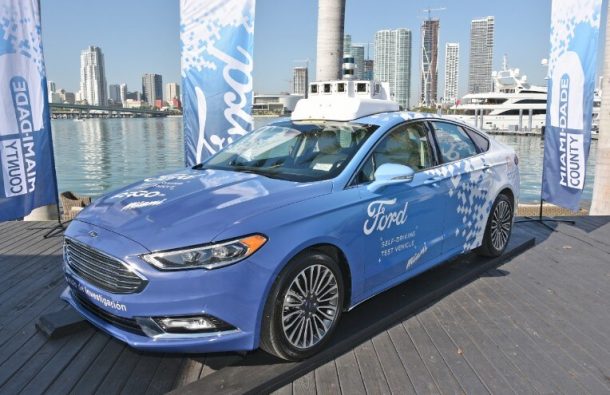


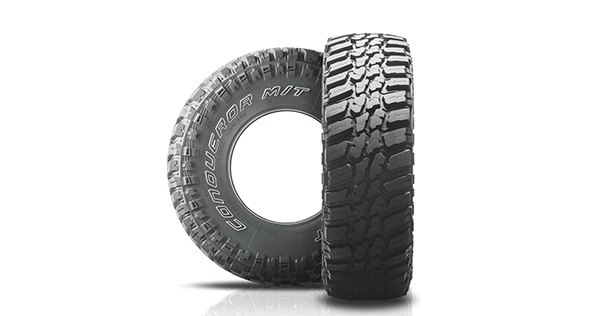






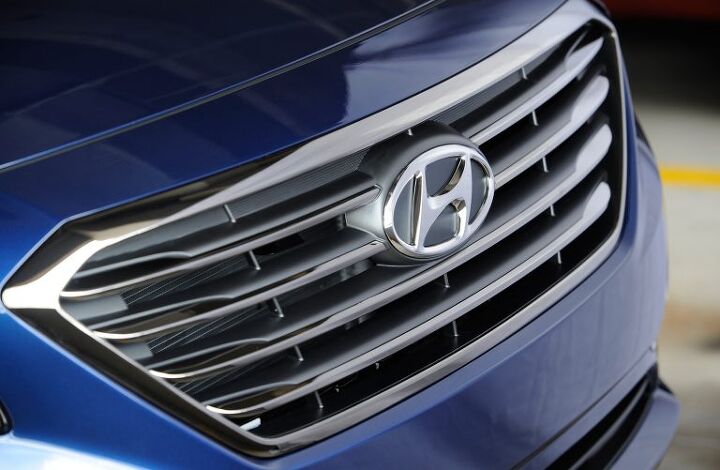


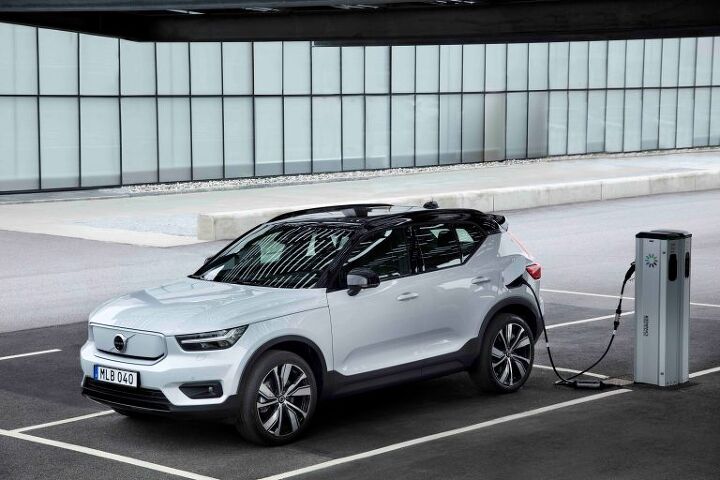






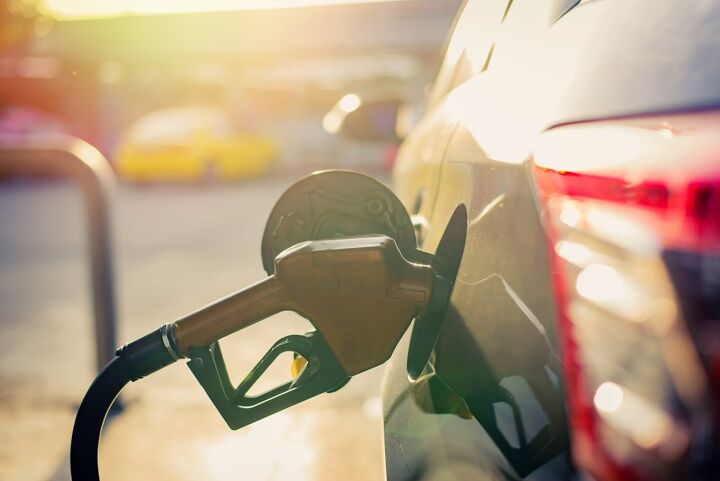





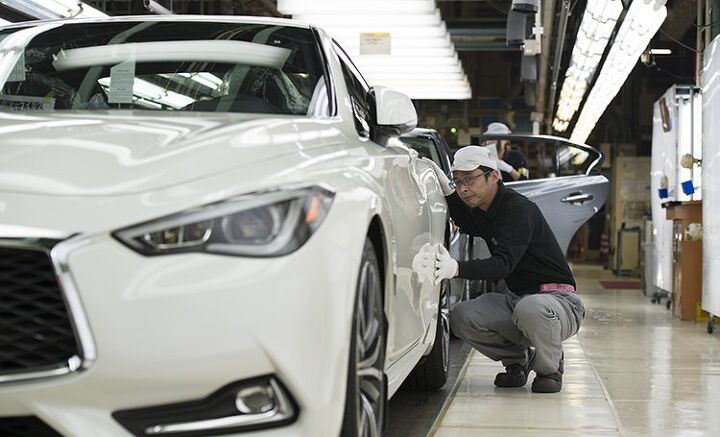

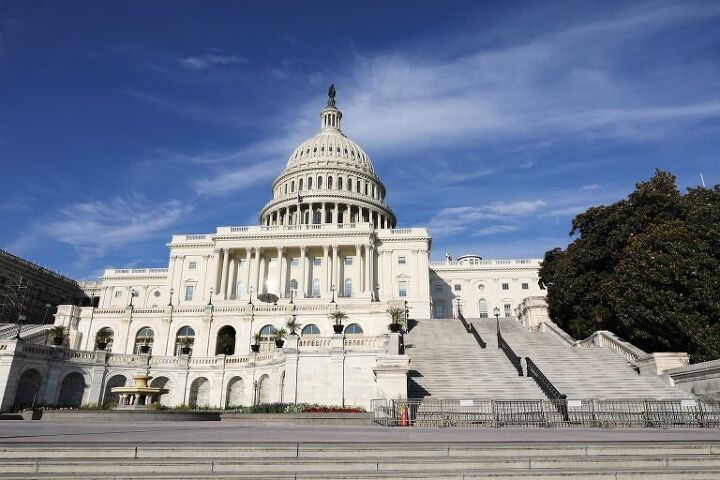


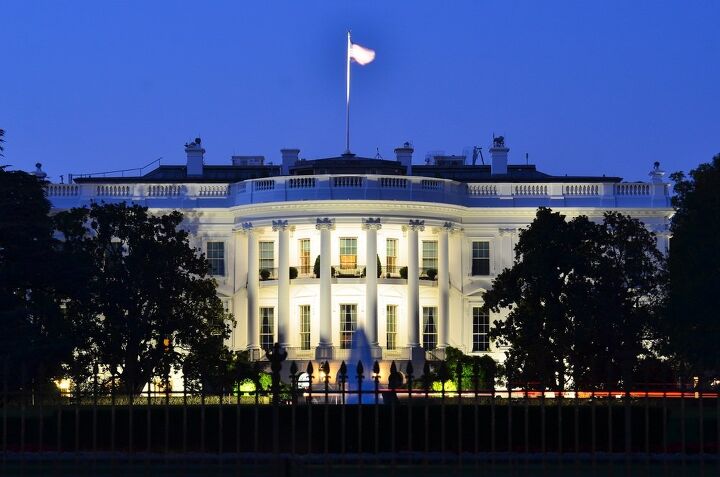
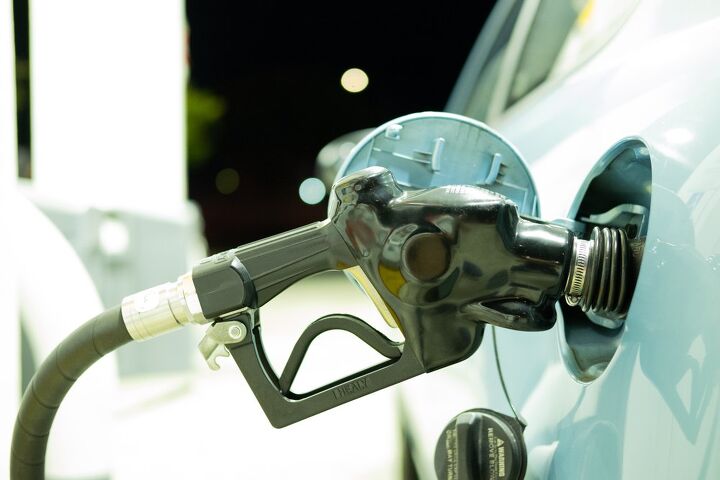



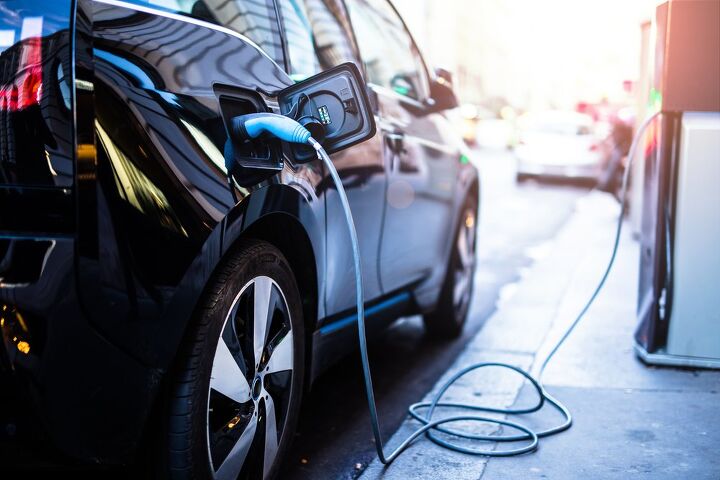





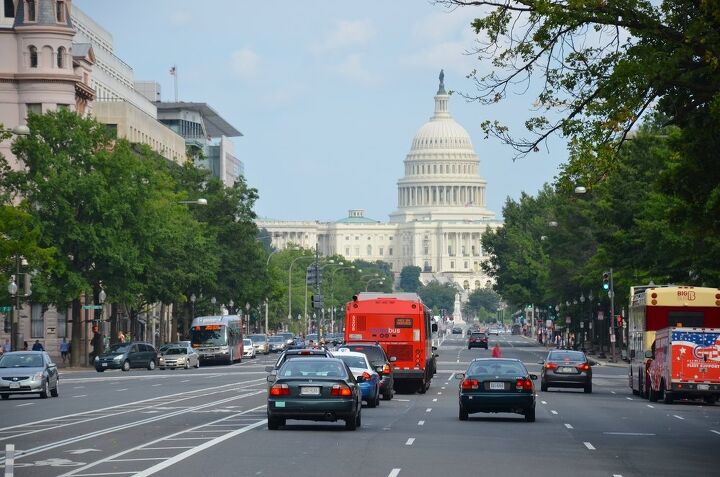

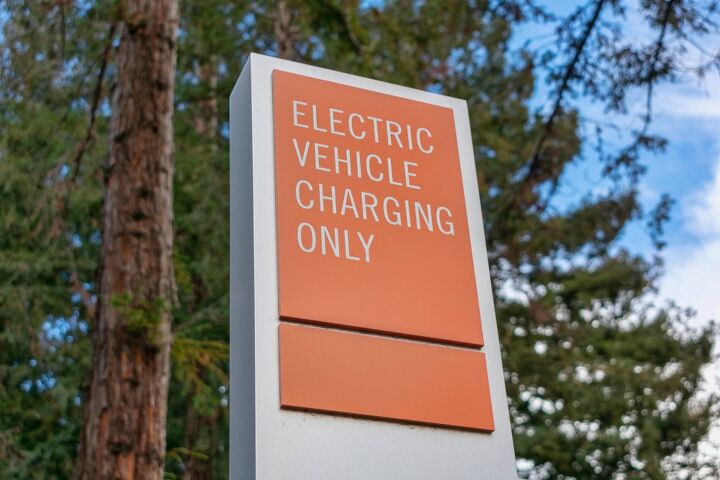













Recent Comments